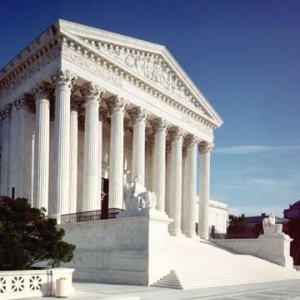Another excellent post from our colleague Brandon Underwood:
A good rule of thumb that trial and appellate lawyers learn early in their careers is that you generally forfeit arguments you don’t make. Suppose that a defendant takes a case to trial and loses, only to realize in briefing its appeal that the plaintiff’s lawsuit was untimely under the statute of limitations. Too bad: the argument is too late, and so the appeals court will ignore it, even if the plaintiff’s lawsuit really was too late. The defendant waived that argument.
But the rule has at least one exception: arguments about a court’s jurisdiction. Unlike most other arguments, a party may challenge a court’s jurisdiction to hear a case for the first time at any stage in the case—even in front of the Supreme Court. In other words, challenges to a court’s subject-matter jurisdiction can’t be waived, unlike the ill-fated statute-of-limitations challenge. (As a corollary, courts in our adversarial system don’t typically raise arguments on their own. Except subject-matter jurisdiction, which courts must raise on their own.)
On June 3, 2019, the Supreme Court resolved a conflict in lower courts about whether a requirement in Title VII of the Civil Rights Act of 1964 is jurisdictional. Under Title VII, before a plaintiff may sue in court, she must first file a charge complaining of an unlawful act with an administrative agency—for instance, the Iowa Civil Rights Commission. This is part of what’s known as exhausting administrative remedies, and federal courts have long held that a plaintiff who fails to exhaust administrative remedies can’t sue in court. But courts disagreed about whether this charge requirement was jurisdictional, leading to conflict about whether the requirement may be waived or not.
 Fort Bend County, Texas v. Davis (No. 18-525) unanimously holds that Title VII’s charge-filing requirement is not jurisdictional and thus may be waived if not raised. Lois Davis filed a charge of sexual harassment and retaliation with the agency, and later tried to supplement her charge with a complaint of religious discrimination. The district court granted summary judgment for Davis’s employer on all these claims.
Fort Bend County, Texas v. Davis (No. 18-525) unanimously holds that Title VII’s charge-filing requirement is not jurisdictional and thus may be waived if not raised. Lois Davis filed a charge of sexual harassment and retaliation with the agency, and later tried to supplement her charge with a complaint of religious discrimination. The district court granted summary judgment for Davis’s employer on all these claims.
On appeal, the appellate court remanded the religious-discrimination claim only for trial. Back in front of the district court, the employer argued for the first time that Davis hadn’t raised the religious-discrimination claim in her charge. The district court agreed, ruling that it accordingly lacked jurisdiction. The appeals court then reinstated Davis’s claim, holding that Title VII’s charge-filing requirement is not jurisdictional and had been forfeited when Davis’s employer failed to raise it earlier. The Supreme Court agreed with the appellate court.
In a short opinion, the Supreme Court reasoned that Title VII’s charge-filing provisions read like a party’s non-jurisdictional procedural obligations, not like jurisdictional obligations. These procedural obligations compel a plaintiff to submit information to the agency and wait a specified amount of time before filing a lawsuit. The provisions do not say they are jurisdictional. And although courts must enforce the charge-filing requirement if it is properly raised, a party forfeits the challenge by waiting too long.
The day-to-day effects of Davis are, to be sure, pretty limited, as the Supreme Court noted. Defendants have good reason to promptly raise the objection: to rid themselves of lawsuits. On the other hand, plaintiffs, the Supreme Court observed, “would be foolhardy consciously to take the risk that the employer would forgo a potentially dispositive defense.”
In other words, plaintiffs in most cases will continue to file administrative charges as required by law. And in those cases where the plaintiff doesn’t, defendants in most cases will not waive the challenge by failing to bring it up. Davis will figure in only unusual cases, like Davis itself.